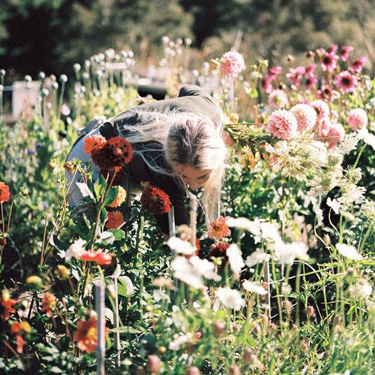Gardening for mental health
Winter is well and truly here and with it come longer, darker days. For people with mental health issues darkness and cold can be triggers for depression, but they need not be. Recent research from the University of New Hampshire reports that gardening is good for your mental health, as well as your physical wellbeing.
There’s been lots of research published about how gardening improves physical health and mental well-being, but now there’s proof. The University of New Hampshire study showed that increased gardening lead to reductions in stress levels and associated depression, reduced reliance on medications and a decreased need for psychiatric services.
“Research shows many positive results for both adults and children when they spend more time in the garden. When we include the field of horticultural therapy, the list of benefits and ailments treated continues to expand.”
So many of us live busy hectic schedules, rushing from A to B worrying about getting the next thing on done. In the garden we’re on Mother Nature’s time. We can water and feed gardens. Some people even sing to plants but the fact of the matter is you can’t speed up natural growing processes. Knowing that speed is out of the question, people relax and take time to enjoy the sights, smells and serenity of being in the garden.
“Gardening has also been shown to help lessen agitation and aggressive behaviours associated with Alzheimer’s disease and dementia. Working in the garden also provides manual activity and opportunities for positive social interactions, which helps people dealing with drug- and alcohol-related illnesses.”
So ‘rug up’ warm this autumn and get in your garden. Unsure where to start? Choose a place that you can see from your living area or bedroom. As the dark days of winter roll in, it’s always nice to look out over areas of your garden that you’ve worked hard on during the autumn.
Autumn is in fact nature’s planting season. Why is it a good time to plant? Soil temperature is at its peak, making the kindest of environments for plant roots to snuggle into. Coupled with autumn’s rain means plants have a couple of months to establish themselves before they shut down for winter.
Plenty of hardy annuals, such as pansies, poppies, primulas and polyanthus, can be planted directly in the soil now to ensure an earlier display next spring. The bright coloured foliage and flowers will brighten anyone’s day.
For those days when it’s simply too cold and wet to go outside look out for The Man Who Planted Trees by Jim Robbins. This book discusses the unseen world of chemical communication between plants. He suggests the enjoyment we derive from gardening is due to our immersion in the gardens and forest’s natural communication networks.
So if you’re feeling stressed or just a bit low. Reach out for help. Talk to people who can support you. Then head into the garden for a spot of gardening therapy. Remember plants, trees and green spaces are good for you, your family, your neighbours, your community… Greenlife really does matter!

27-May-2016


